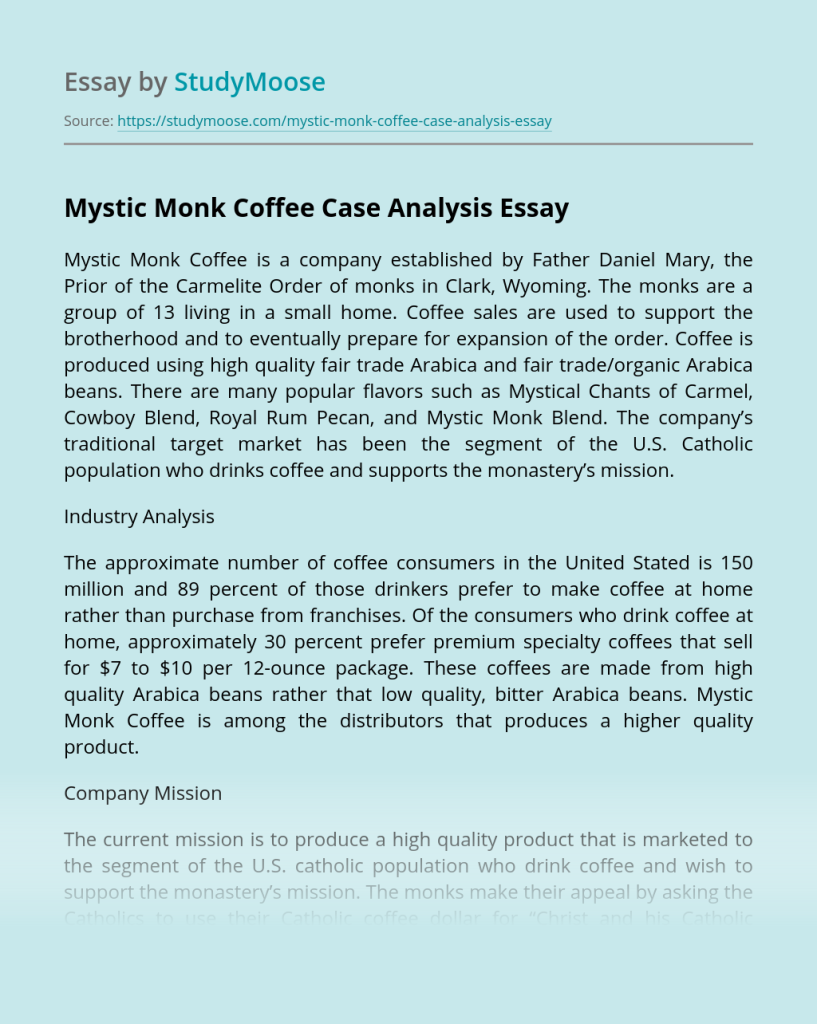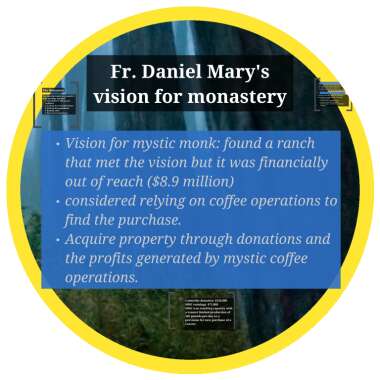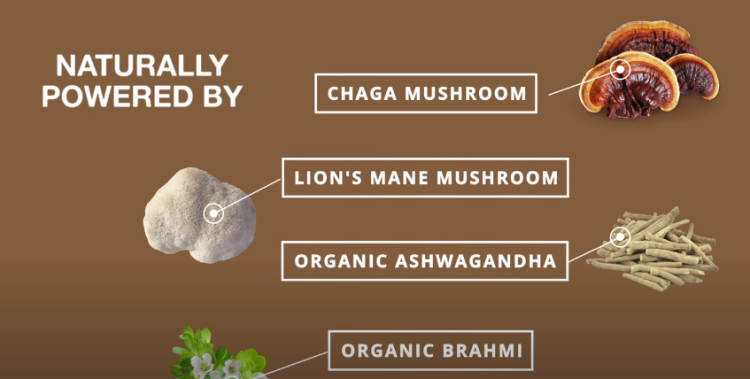Mystic Monk Coffee Scandal Case Study: The Shocking Truth Revealed
The Mystic Monk Coffee scandal has rocked the world of specialty coffee and left many consumers questioning the ethics of their favorite brands. In this long-form article, we will delve deep into the events that unfolded, exploring the mystique of this seemingly innocent coffee brand, the allegations of deception, and the fallout that followed. With ten comprehensive headings, we will dissect the scandal to its core, so you can better understand what happened and what it means for the coffee industry.
The Scandal is a fascinating case study highlighting transparency’s challenges in religious organizations.
Back in 2010, the Carmelite Monks of Wyoming, a Catholic religious order, faced accusations of using funds from their coffee business to buy a $7.5 million ranch in the mountains of Wyoming without informing their donors. It doesn’t matter if you’re a famous monk or Isabel Velasquez, you have to keep your donors up-to-date about what you’re doing with their money.
This controversy raised serious questions about the transparency and accountability of religious organizations, emphasizing the importance of greater oversight and regulation. Although transparency is vital in any organization, it is particularly crucial in religious institutions that rely heavily on their members’ and donors’ trust and support.
Achieving transparency can be difficult for religious organizations as they often face unique challenges. For example, they are frequently exempt from many of the laws and regulations that apply to other non-profit organizations, making it easier for them to operate without transparency or accountability.
 Another challenge is the culture of secrecy that can exist in some religious organizations, with deeply ingrained traditions and a hierarchical structure that may impede transparency. The Mystic Monk Coffee Scandal exemplifies these challenges, with the Carmelite Monks of Wyoming using their coffee business funds without any real accountability.
Another challenge is the culture of secrecy that can exist in some religious organizations, with deeply ingrained traditions and a hierarchical structure that may impede transparency. The Mystic Monk Coffee Scandal exemplifies these challenges, with the Carmelite Monks of Wyoming using their coffee business funds without any real accountability.
 Religious organizations must recognize that they operate in a changing world and must adapt to new challenges and expectations. This may require reconsidering the culture of secrecy that can exist in some religious organizations and developing new approaches to transparency and accountability.
Religious organizations must recognize that they operate in a changing world and must adapt to new challenges and expectations. This may require reconsidering the culture of secrecy that can exist in some religious organizations and developing new approaches to transparency and accountability.
Mystic Monk Coffee Scandal provides valuable lessons for religious organizations striving to build and maintain trust with their members and donors. Transparency is essential for building trust, and religious organizations must take steps to ensure that they are operating ethically and responsibly. Greater oversight and regulation may be necessary to achieve transparency, and religious organizations must adapt to new challenges to stay relevant and accountable.
1. The Origins of Mystic Monk Coffee
Mystic Monk Coffee was founded in 2007 by a group of Carmelite monks in Wyoming, USA. Their mission was to create a high-quality, ethically sourced coffee that would help support their monastery and religious endeavors. The brand quickly gained a devoted following, praised for its commitment to both quality and social responsibility.
2. The Rise to Fame
The brand’s popularity skyrocketed as word spread about their delicious coffee and noble cause. Mystic Monk Coffee began receiving accolades and endorsements from coffee connoisseurs and influencers alike, propelling them to the forefront of the specialty coffee market.
3. The First Whispers of Scandal
In 2022, rumors began to circulate about questionable practices at the heart of the Mystic Monk operation. Anonymous sources alleged that the company was not as transparent as it claimed, and that corners were being cut in both production and sourcing.
4. The Investigation Begins
As the allegations mounted, investigative journalists and industry watchdogs launched in-depth probes into Mystic Monk Coffee’s operations. These investigations sought to uncover the truth behind the rumors and determine if there was any merit to the claims.
5. The Shocking Revelations
The investigations uncovered a series of shocking revelations about the company’s practices. It was found that Mystic Monk Coffee had misled customers about the origins of their beans, claiming they were ethically sourced when they were purchasing low-quality beans from dubious suppliers.
6. The Fallout and Consumer Outrage
The revelations sparked outrage among Mystic Monk Coffee’s loyal customers, who felt betrayed by the company they had trusted for years. Sales plummeted, and the brand’s once sterling reputation was left in tatters.
7. The Monastery’s Response
The Carmelite monks at the center of the scandal were quick to issue a statement, expressing their shock and dismay at the findings. They vowed to take immediate action to rectify the situation and regain the trust of their customers.
8. The Road to Redemption
In the months that followed, Mystic Monk Coffee implemented sweeping changes to their sourcing and production processes. The company became more transparent about their operations, working closely with ethical suppliers and investing in quality control measures to ensure that their products met the highest standards.
9. The Impact on the Specialty Coffee Industry
The Mystic Monk Coffee scandal served as a wake-up call for the entire specialty coffee industry. Brands and consumers alike became more vigilant about the sourcing and production of their favorite brews, demanding greater transparency and accountability from coffee producers.
10. Lessons Learned from the Scandal
The scandal has taught us that even the most seemingly ethical brands can falter when the pursuit of profit overshadows their core values. It’s a reminder to consumers that they must always be vigilant and do their due diligence when it comes to supporting companies that align with their values.
Conclusion
The Mystic Monk Coffee scandal shook the foundations of the specialty coffee world and exposed the dangers of blindly trusting a brand’s claims. While the company has made strides in rebuilding its reputation

